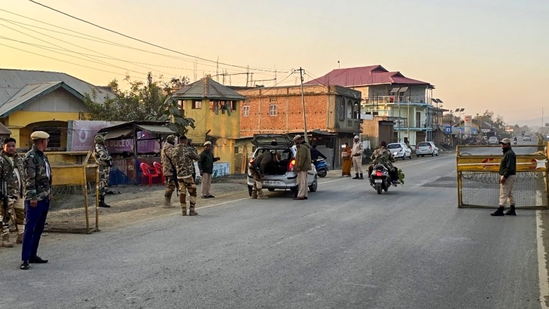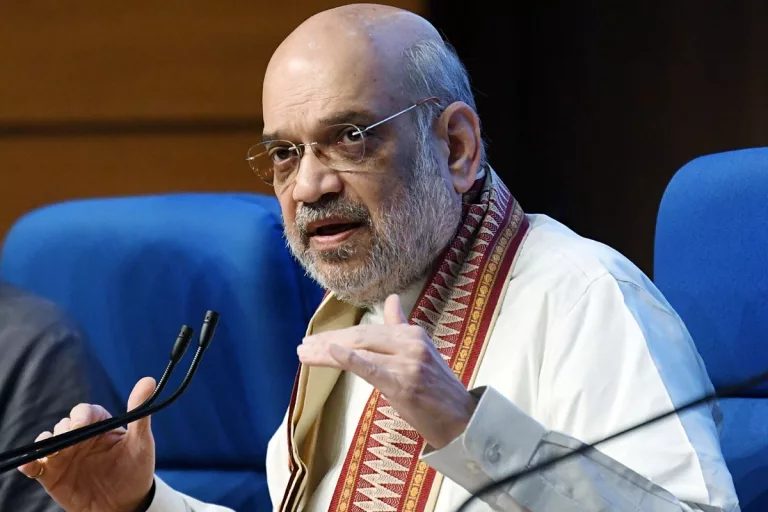By The Sampadak Express
The Ministry of Home Affairs (MHA) has announced the extension of the Armed Forces Special Powers Act (AFSPA) to the entire state of Manipur, with the exception of 13 police station areas. This move comes as part of the ongoing efforts to address security challenges and maintain order in the region. In addition, AFSPA has been extended to Tirap, Changlang, and Longding districts in Arunachal Pradesh, along with three police station areas in the state, for a period of six months.
The announcement follows a period of significant political uncertainty in Manipur, particularly after the resignation of Chief Minister N. Biren Singh on February 13. Singh’s resignation came after more than 20 months of ethnic violence that has claimed the lives of over 250 people since May 2023. The state was subsequently placed under President’s Rule, with the legislative assembly suspended.
Background of AFSPA in Manipur
AFSPA has been in effect in Manipur since the early 1980s and grants the armed forces special powers to maintain public order in “disturbed areas.” While it is aimed at curbing insurgency and unrest, AFSPA has been widely criticized for its broad and often controversial powers, including the ability to shoot to kill, arrest without warrants, and search properties without permission. The law has faced intense scrutiny from human rights organizations, activists, and local communities due to its perceived abuse and lack of accountability.
Security Operations in Manipur
As part of efforts to maintain peace and security in the state, security forces conducted extensive search operations and area domination activities in both the hill and valley districts of Manipur on Saturday. These operations primarily focused on the fringe and vulnerable areas of the state, which have been hotspots for unrest and insurgent activities.
During these operations, the security forces recovered a significant haul of arms and ammunition. According to a statement from the Imphal Police, the recovered items included:
One country-made rifle
One bolt-action rifle
One .22 pistol
One country-made mortar (Pompi – 6 ft.)
One country-made mortar (Pompi – 5 ft.)
One country-made mortar (Pompi – 4 ft.)
One local-made hand grenade
One helmet
One wireless set and its charger
One high-explosive (HE) bomb
Ten 5.56mm live rounds
Twelve 7.62x39mm empty cases
Four 7.62x45mm empty cases500 grams of gunpowder
The recovery was made in the Thangjing Hill Forest area under the Churachandpur Police Station, located in Churachandpur District. The operation highlights the ongoing security challenges in the region, where insurgent groups continue to pose a significant threat.
Political Instability and Ongoing Ethnic Violence
The extension of AFSPA comes amid continuing ethnic violence and political instability in Manipur. The violence, which has been ongoing since May 2023, has primarily been between the Meitei and Kuki communities, leading to widespread displacement and loss of life. The situation escalated after Chief Minister N. Biren Singh’s resignation, which left the state grappling with both political and social unrest.
Manipur has long been a hotspot for insurgency and ethnic tensions, and the extension of AFSPA underscores the continuing security concerns in the region. Despite the imposition of AFSPA, questions remain about its effectiveness in curbing violence and ensuring lasting peace. The law’s extension reflects the government’s approach to maintaining order, but it continues to be a source of contention for many local communities, who argue that it infringes on their rights.
With the extension of AFSPA, the Ministry of Home Affairs aims to ensure greater control over security operations in Manipur and certain areas of Arunachal Pradesh. However, the move is likely to continue sparking debates on the balance between security and human rights in the region. As violence and unrest persist, the future of Manipur’s political and social stability remains uncertain, with the extension of AFSPA marking a significant chapter in the state’s ongoing struggle with ethnic and insurgent conflicts.






